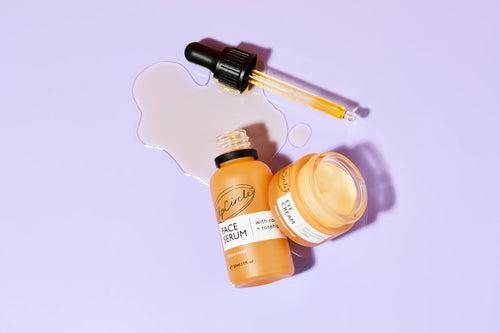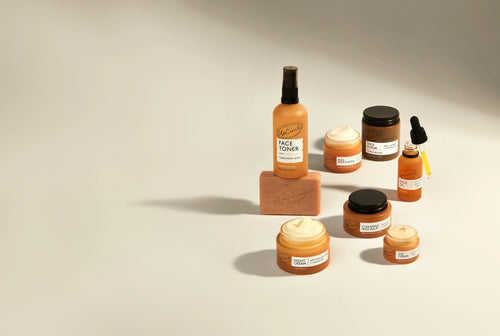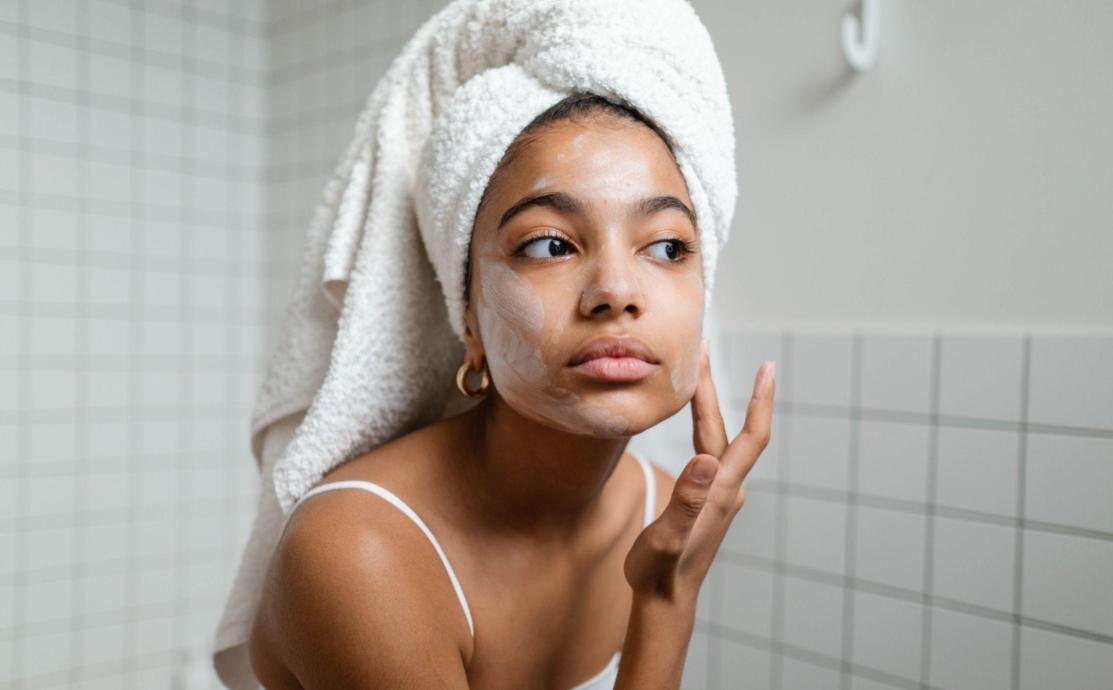Just when you thought you’d got to grips with the ins and outs in the world of skincare, along comes Retin-A, retinol and retinal. They all sound the same, but they are in fact different forms of vitamin A.
Retinol, Retin-A and retinal all fall under the umbrella term of ‘retinoids’ – compounds including both natural biologically active forms and synthetic forms of vitamin A, sharing functional similarities. Retinoids are widely used in skincare products to treat and prevent common skin conditions such as acne and psoriasis.
When applied topically as a skincare product, forms of vitamin A such as Retin-A, retinol and retinal can visibly reduce the appearance of hyperpigmentation, enlarged pores and can help to reduce acne.
Before we get started with Retin-A vs retinol vs retinal, we wanted to quickly talk about ageing skin. You’ll find that many studies on the skin benefits of retinoids hail them as anti-ageing, reducing the appearance of fine lines and wrinkles.
It’s important to remember that mature skin is not a problem that needs to be solved – it shows your story and is an indicator of a life lived to the fullest. If you want to use products such as retinoids to combat signs of ageing, feel free to do so – but don’t ever feel like you need to.
What is retinal?
Retinaldehyde (retinal) is formed when retinol is transformed to retinoic acid in human keratinocytes – the most common type of skin cell. This sounds complex, but in reality, retinal is a type of retinoid that is formed when retinol changes to retinoic acid in human skin cells.
Studies have shown that in the skin, retinal is metabolized (an essential chemical process that occurs within a living organism) into retinoic acid, retinol and retinyl esters, making it useful in the treatment of photoaging. This is because retinoids help to increase cell turnover and also stimulate collagen production which can lessen the signs of ageing such as wrinkled skin.
Photoaging refers to the damage caused to the skin by UV light and can be characterized by hyperpigmentation, lax skin with wrinkles and thinner skin. Retinoids help to combat this typically as retinal skin care creams or retinoic acid treatments.
What is retinol?
Retinol is another form of vitamin A that is essential for maintaining healthy skin, as well as healthy vision and immune function. It is a fat-soluble vitamin that can be both found naturally or produced synthetically.
Retinol helps to slow the ageing process of the skin most effectively as it is able to penetrate the stratum corneum (outermost layer of the skin) and also slightly into the dermis which is the middle layer of skin. This ability to penetrate into multiple layers of the skin – alongside the ability to promote cell turnover and stimulate collagen production – makes retinol a popular ingredient in many skincare products aimed at helping to reduce the appearance of fine lines, wrinkles, and uneven skin tone.
What is Retin-A?
Retin-A is a brand name for the topical skin medication tretinoin, a form of retinoic acid. Retin-A is primarily used to treat acne vulgaris and is available in varying concentrations and forms such as gels or creams. Tretinoin is the most bioactive form among retinoids applied topically to the skin, increasing the epidermal cellular turnover.
All retinoids – but especially tretinoin and the product Retin-A – can increase sun sensitivity. You should use a quality mineral SPF of at least 25 daily, but it is absolutely essential to do so when using any form of retinoids in your skincare routine.
Can a GP prescribe Retin-A?
Products containing tretinoin – such as Retin-A – are only available with a prescription in the UK. GPs can prescribe this treatment, as well as dermatologists. Tretinoin is usually reserved for people who have moderate to severe acne.
Those who use products with tretinoin should be closely monitored by a GP or dermatologist because of the potency of the ingredient, hence why it is only available on prescription.
How long does Retin-A purging last?
Retin-A purging is where at the start of the treatment course, the skin condition it is treating gets worse. This could be a few additional breakouts or patches of dryness to deal with or more patches of sore, red acne.
Many users of tretinoin products don’t stick out the full course because they fear they have made a mistake when the Retin-A purging begins – however, this is unfortunately a reality for most users. The tretinoin purge can last anywhere from two to three weeks to several months.
How long does Retin-A take to work?
Much like the Retin-A purge, the length of time it takes for Retin-A to work is also unique to each user. Some people see results in a matter of weeks, but for others, it can take months. If you’re using tretinoin and Retin-A, it’s essential to have regular appointments with your GP or dermatologist to discuss progress and any concerns you may have.
Boost your skin with natural sources of retinol
At UpCircle, we firmly believe that the natural way is best. We carefully select ingredients that are natural and vegan for our cruelty-free skincare products and upcycle ingredients that would otherwise go to waste.
You can reap the benefits of retinoids in our plastic negative Night Cream with Hyaluronic Acid & Niacinamide which includes blueberry extract, a natural source of pro-retinol (retinol proportionate). The UpCircle Night Cream is made with the antioxidant-rich extract of upcycled blueberries, a by-product of the blueberry juicing industry.
Another way to benefit from the positive effects of retinoids is to use a natural alternative such as rosehip oil or carrot seed oil. Bakuchiol is also often used as an alternative to retinoids, but this is unsustainable. You can find Rosa Canina (Rosehip) Fruit Oil in our Organic Face Serum with Coffee Oil as well as in our Floral Blend Coffee Face Scrub for Sensitive Skin.
Browse our full range of vegan and natural skincare at UpCircle and build a cruelty-free skincare routine.








